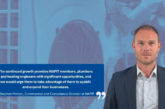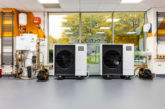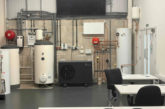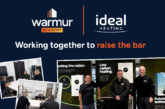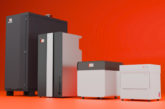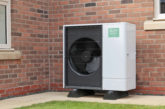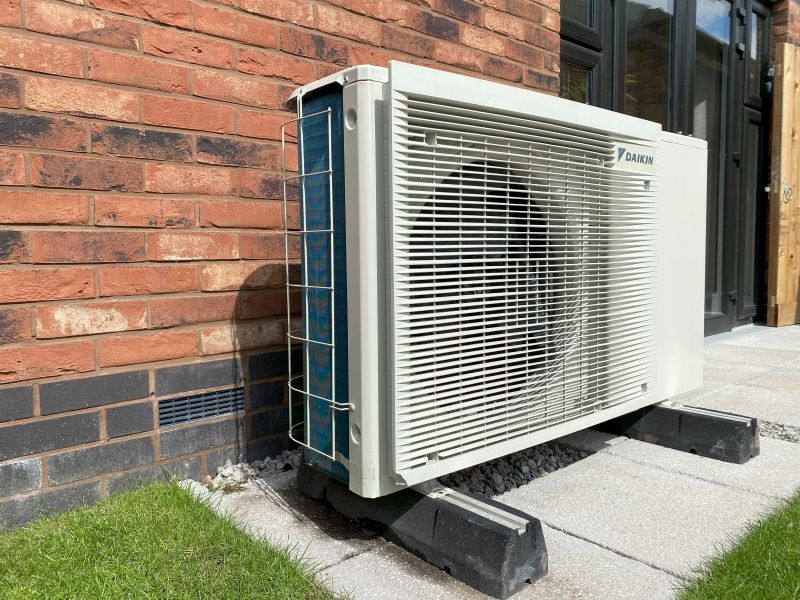
Hamid Salimi, from Daikin, outlines the opportunities in low carbon heating and explains how, with the right training and support, installers can break into the heat pump market.
The numbers tell a compelling story. The UK government wants to leap from around 30,000 heat pump installations before 2020 to 600,000 annually by 2028 – that’s a twenty-fold increase in less than a decade. But here’s the challenge: there simply aren’t enough skilled installers to make it happen. And here’s the opportunity: if you’re already Gas Safe registered and working in heating, you’re well positioned to fill that gap.
This isn’t just another government target destined to fall short. The UK heating industry is experiencing the most significant transformation in decades, creating what could be the business opportunity of a lifetime for heating professionals ready to act now.
The pressure comes from multiple directions, and it’s not going away. The legally binding Net Zero commitment by 2050 has put residential heating firmly in the spotlight – after all, domestic gas combustion accounts for roughly 14% of UK greenhouse gas emissions.
Add volatile gas prices and genuinely growing environmental consciousness among homeowners, and you have real consumer demand for heating alternatives that promise both lower carbon footprints and potentially reduced running costs.
The result? The industry needs many more qualified installers within just three years. For heating professionals who move quickly, this represents an unprecedented chance to get ahead of the curve in a rapidly expanding market.
Halfway there
Here’s the best part: you don’t need to start from scratch. If you are already working with boilers and central heating systems, you possess the core skills that translate to heat pump installation. Your understanding of system design, water circulation principles, and complex installations provides a foundation for developing heat pump expertise.
Think about what you already do well. You manage customer relationships, deliver quality workmanship, and solve heating problems under pressure. You understand how heating systems work, you know your way around pipework, and you’ve built a reputation for reliable service. These aren’t just transferable skills – they’re exactly what the heat pump market needs.
Rather than requiring a complete career change, moving into heat pumps is more like adding another string to your bow. You’re expanding your technical knowledge, not rebuilding it from the ground up. And that experience gives you a massive advantage over newcomers trying to enter the market without your background.
Training
Leading manufacturers, like Daikin, have invested heavily in training programmes that go far beyond basic product familiarisation. The Sustainable Homes Network (SHN) offers structured pathways that let you build expertise progressively while keeping your existing business running.
The key is finding training that combines proper classroom learning with hands-on experience using real, working heat pump systems. This practical approach proves invaluable when you’re trying to understand the nuances of different technologies and how they work across various property types and heating requirements.
Look for programmes that also offer discounts on professional certifications like MCS accreditation – removing the financial barriers to achieving recognised qualifications in renewable heating.
Business support
Smart manufacturers understand that training alone isn’t enough. That’s why programmes like Daikin’s SHN extend into comprehensive business development support. This means lead generation systems that connect qualified installers with potential customers, co-branded marketing materials that enhance your professional credibility, and reward schemes that provide tangible financial benefits.
The progression pathway is clear and manageable. Complete your initial training and you can start installing. Finish three installations with manufacturer support, and you unlock access to installer locator listings and lead management tools. This graduated approach lets you build confidence and competence systematically, rather than facing overwhelming demands from day one.
For those wanting to go further, expert-level certification becomes available once you achieve MCS qualification and complete advanced training courses. These higher-tier programmes offer enhanced financial rewards and priority technical support – clear incentives for continued professional development.
Technical assistance
Perhaps the most valuable aspect of manufacturer-supported programmes is the ongoing technical assistance. Priority access to technical helpdesks and expert commissioning support ensures you can maintain service quality standards during the learning curve associated with new technology.
Free commissioning support for your initial installations helps build confidence while ensuring customer satisfaction. This manufacturer backing significantly reduces the business risks of entering a new market segment – technical expertise remains available exactly when you need it most.
Reliable warranty options further enhance customer confidence while protecting your reputation. These comprehensive support networks recognise that successful market development requires sustained commitment, not just initial training followed by radio silence.
Market growth
The numbers work in your favour. Early adopters are positioning themselves for sustained business growth as market demand continues expanding. The current skills shortage means qualified installers can command premium pricing while building strong customer relationships in a genuine growth sector.
Better yet, modern training programmes are designed to work alongside existing business operations. You don’t need to make immediate wholesale changes. Instead, you can diversify your service offering strategically while maintaining established revenue streams.
The transformation of UK heating represents more than technological change – it’s a pathway to future-proofed business growth for professionals prepared to embrace new opportunities. With training infrastructure now in place and substantial market demand emerging, the question isn’t whether to engage with the heat pump market. It’s how quickly you can position yourself to capitalise on this opportunity.
IMAGE: Daikin


